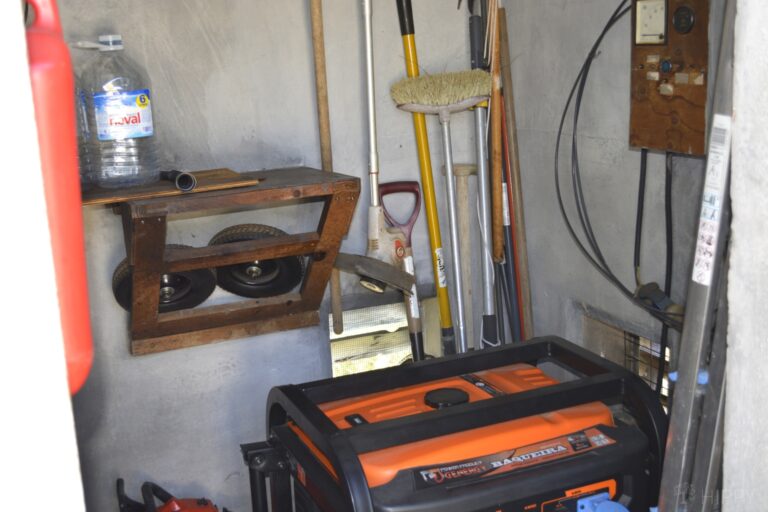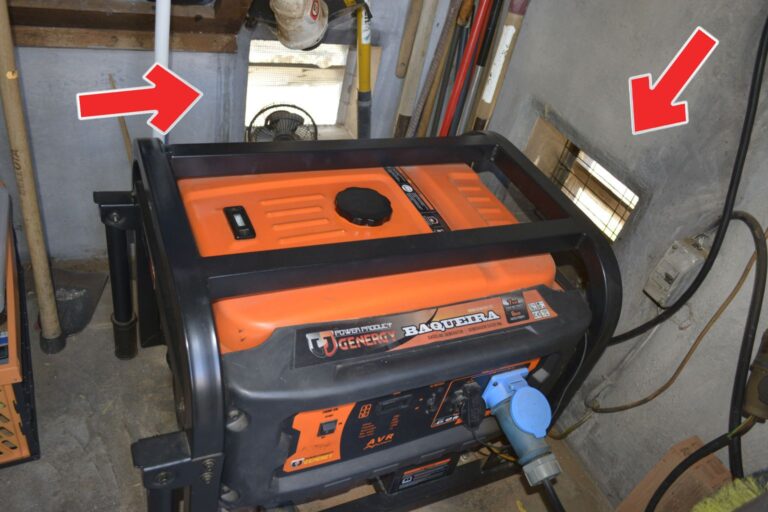Every homesteader knows by now how indispensable generators are. For getting work done around the property when extension cords just won’t reach to keeping the lights on after a particularly nasty storm, they’ll be getting plenty of up-time.

But as ready and reliable as they are, they can be surprisingly finicky, especially during rough weather. Speaking of, is it okay if your generator gets wet? What happens if it does?
Generators that get wet will start to have problems. A little moisture can cause rusting of components over time, and getting drenched or splashed may cause shorting or various other malfunctions. Immersion is likely to result in severe damage or even destruction and is a major shock hazard.
The bottom line is that nothing good happens when your unit gets wet, even if the amount of water is so small that it won’t impair normal function.
No matter what kind of genny you have, you need to take steps to protect it from water, from any source. The following information is important for all generator owners, so pay attention and we’ll get right into it.
Water is Always Troublesome for Generators
Your generator has been there for you through thick and thin. You might think that it can withstand anything! Sadly, when it comes to water, it’s a different story.
Water is always troublesome for generators. Why? Because they are ultimately electrical devices and water and electricity just do not mix.
A little bit of moisture might not immediately disrupt, damage or destroy your unit, but repeated, consistent exposure to even small amounts of water can lead to significant damage over time. Even a single big splash or, worse, getting dunked in any amount of water might spell “the end” for it.
Accordingly, you must ensure that your genny is protected from the elements at all times, even when you need it desperately!
Are Portable Generators Waterproof?
The straight answer is no. Despite their convenience and versatility, and ubiquity in outdoor work environments, portable generators are not designed to be exposed to truly wet weather or to standing water. Sure, they can shrug off a few droplets or a very fine mist, but that’s all.
A wet portable poses a major risk of shock and electrocution. They’re particularly dangerous when you’re trying to plug or unplug items from them.
Susceptibility to water damage is a crucial factor to consider when placing, starting, and running your generator in wet environs, or anytime there’s a risk of rain.
However, with proper protection, you can ensure that your portable generator serves you well regardless of the weather. I’ll tell you more on that in just a bit…
Are Backup Generators Waterproof?
Yes and no. Backup generators are designed to withstand standard weather conditions, including light precipitation, but they certainly aren’t immune to all forms of water exposure. They typically do so through a combination of weather-resistant casings and enclosures and protected wiring harnesses.
But while this insulation is typically sufficient to deal with normal rain or snowfall with no intervention from you, that doesn’t mean your generator is completely waterproof. Flooding can still wreck it and leave you lights-out.
During a flood, water can seep into the unit under and around those protective fairings, damaging the internal components and potentially leading to permanent malfunction. This is why it’s especially critical to site a backup genny in a spot that’s unlikely to be affected by flooding.
So What Happens if Your Generator Gets Wet?
Not all exposure is created equal, like I said, and you don’t have to freak out if a few drops or a small- small – splash gets on the unit. But you must know how much is too much, and understand the risks of repeated, light exposure.
A little mist or snow isn’t a big deal for your generator. But hard rain? That’s a major problem. And rising water or immersion? That’s catastrophic.
The two immediate concerns from light exposure are rust and corrosion. Water, when combined with oxygen in air, can easily corrode the metal parts of your generator. This can degrade the structural integrity of the frame and essential components over time, and will eventually lead to breakage or failure.
Another potential problem is malfunctioning. Water will interfere with electrical circuits within your device, on the control panel or otherwise, causing it to behave erratically or in some cases stop working entirely.
You might notice your generator stuttering, failing to provide consistent power, or refusing to start up. Controls might not respond or might behave unpredictably.
Shorting is another major concern. Water conducts electricity wonderfully and so when it comes into contact with the electrical components of your generator, it can cause short circuits.
This can result in damage to the wiring and other electrical parts, potentially causing a fire. The risk of electrocution also increases exponentially in such situations, especially as in a flood situation.
Worst of all, when the unit is submerged water can infiltrate every part and compartment, causing extensive damage and likely rendering the generator totally unable to function.
Most times it causes serious damage.
Water isn’t compressible, so if it enters the combustion chamber, it can cause what’s known as hydrolock, and subsequently irreparable engine damage.
Here’s What To Do if It Does
First, assess the situation and severity of the incident, and shut it down if you can. Your first step should be to dry it off as quickly and thoroughly as possible if the situation is safe.
You can use towels to blot away any visible moisture from light exposure, trying to reach into all the nooks and crannies where water might hide.
For a more thorough drying, compressed air is tops. This can help to drive out water from areas that are difficult to reach with a towel.
An air compressor with a blower tip or a shop-vac with the hose on the exhaust port will be highly effective at removing water, especially if your generator has been exposed to rain or a big splash. If you have a space heater, placing it near will also speed up the drying process. Do not use a heat gun!
If your unit has been submerged in water, sadly, simply drying it off won’t be enough. In this case, you’ll likely need to tear down the generator, inspect each component for damage, and then rebuild it with proper lube and other additives at every step.
Assuming the genny wasn’t totally wrecked, this laborious process will ensure that all water is removed and any damaged parts (if any) are replaced.
It’s always better to be safe than sorry, so don’t slack off if you want to try and save it. Consider taking it to a dealer or repair shop if you aren’t up to the task.
How Can You Protect Your Generator from Water?
Say it with me: an ounce of prevention is worth a pound of cure! That’s right, and so protecting your generator is a great way to ensure longevity and save yourself some killer headaches.
First and foremost, this begins with keeping it away from all possible flooding and the threat of rising water. As said, this occurrence is catastrophic. Always select a location for your unit that’s high enough to avoid any potential floodwater.
For rain and snow, overhead coverage is a must.
One option is to buy a cover or tent specifically designed for generators. These are typically made from waterproof materials and are designed to fit properly over your unit, providing water protection while still allowing adequate ventilation- always necessary during operation!

For units which will be kept in place all or most of the time, you could build a generator shed. This not only shields your generator from the elements entirely but can also add an extra layer of security against theft.
A well-constructed shed can protect your generator from rain, snow, direct sunlight, and dust, all of which have detrimental effects on its lifespan and performance.
Your trusty genny is an investment, and like any other investment, it needs to be protected. It also needs to be ready to work whenever called on, so by taking these simple steps to shield your generator from water, you know you’ll be able to count on it.
Tom has built and remodeled homes, generated his own electricity, grown his own food and more, all in quest of remaining as independent of society as possible. Now he shares his experiences and hard-earned lessons with readers around the country.
Find out more about the team here.
